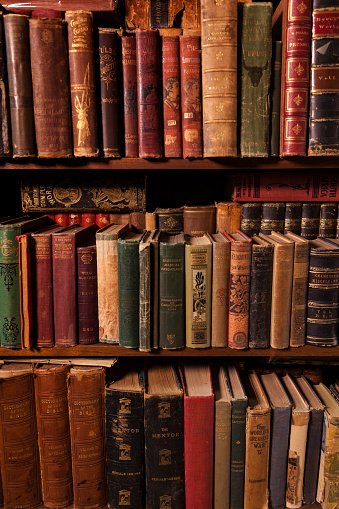THE HYSTERICAL HISTORIAN
THE COUNTRY OF NPR — APRIL 4, 1997 — After vamping about “this week’s show,” butter-smooth Ira Glass introduces a new voice to the fairly new “This American Life.” She begins:
“We were hopeful immigrants from small town Oklahoma who set out for a better life in small town Montana and became new people.” Normal stuff, but that voice! Small. Mincing. Sing-songy. Are they putting nine-year-olds on NPR? Stay tuned because. . .
“Where else but America can an okra-eating, twang-talking, God-fearing good girl like me be given the opportunity to turn into the liquored-up opinion mongering heathen I am today.”
Historians are a somber bunch. No one turns to Eric Foner or Jill Lepore for laughs. And history itself is:
“. . . a fable agreed upon.” — Napoleon
“. . . a nightmare from which I’m trying to recover.” — James Joyce
“. . . an account, mostly false, of events, mostly unimportant, which are brought about by rulers, mostly knaves, and soldiers, mostly fools.” — Ambrose Bierce
But since the dawn of this bleak century, one historian has been mostly hysterical. Sarah Vowell is “a cranky stylist with talent to burn” (Newsweek) and “a Madonna of Americana” (Los Angeles Times Book Review). “Vowell,” the Baltimore Sun wrote, “could make a trip to the DMV interesting.”
Blending her teenage love of music — from Sinatra to Nirvana — with an adult curiosity about all things American, Vowell is a self-described “history nerd.” And “nerd,” she insists, is no insult. “Being a nerd, which is to say going too far and caring too much about a subject, is the best way to make friends I know.” And she proves it by engaging friends on radio, in person, and in print.
Vowell’s best-selling books are history with attitude. She can barely get through a paragraph on the Founding Fathers, say, without comparing them to the founders of Rock n’ Roll. And although proudly American, she recoils from our excesses and our evils. She is, she says, “The Partly Cloudy Patriot.”
“American history is a quagmire, and the more one knows, the quaggier the mire gets.”
Like many of us, Vowell came to history in her late 20s, after overcoming high school history, aka “The United States’ path to glory. We would always end at World War II, just because we ran out of time.”
Hired by Ira Glass after he read her book-length diary of a year listening to radio, Vowell started with personal history. Her hilarious stories of growing up in Oklahoma and Montana plumbed the growing gap between red and blue culture. “About the only thing my father and I agree on is the Constitution, though I’m partial to the First Amendment while he’s always favored the Second.”
But in 1998, when she and twin sister Amy set out to trace the Cherokee Trail of Tears, Vowell “sort of instantly fell in love with writing about American history, which has ended up being my calling.”
“This American Life” devoted a full hour to Vowell’s Cherokee trip. The farther down the trail she and her sister travel, the more tears they find, yet America — its music, its culture — still calls to them. And in a nation divided between “Patriots’ History” and “People’s History,” Vowell dares to have it both ways. “It’s a good country,” she says. “A bad country. A good country, a bad country. And of course, it’s both”.
“When I think about my relationship with America, I feel like a battered wife: Yeah, he knocks me around a lot, but boy, he sure can dance.”
From the Trail onwards, Vowell has spun America’s fraught history into stories both bemusing and brilliant. On “This American Life,” she saw the entire history of the country from a single street corner in Chicago. In Assassination Vacation, she hit the road to track down truth and tourist trivia about the killings of Presidents Lincoln, Garfield, and McKinley. And at every turn, she waxed hysterical.
“The people who visit the [Lincoln] memorial always look like an advertisement for democracy, so bizarrely, suspiciously diverse that one time I actually saw a man in a cowboy hat standing there reading the Gettysburg Address next to a Hasidic Jew. I wouldn’t have been surprised if they had linked arms with a woman in a burka and a Masai warrior to belt out ‘It’s a Small World After All,’ flanked by a chorus line of nuns and field-tripping, rainbow-skinned schoolchildren.”
Since 2015, Vowell has been uncharacteristically silent. She still gives public readings and occasionally appears on talk shows. But fewer articles, no books. Has the news shrouded her patriot skies? Is the present now the “nightmare” from which she’s trying to recover?
“That, to me, is the quintessential experience of living in the United States,” she has written, “constantly worrying whether or not the country is about to fall apart.”
A new book may be underway. Or not. A new twist on an old story may soon surface. In the meantime, Vowell’s unique voice still rings out online and in audio books, making nerds — and history — matter.
“There are people who look forward to spending their sunset years in the sunshine; it is my own retirement dream to await my death indoors, dragging strangers up dusty staircases while coughing up one of the most thrilling phrases in the English language: ‘It was on this spot...’ My fantasy is to one day become a docent.”









